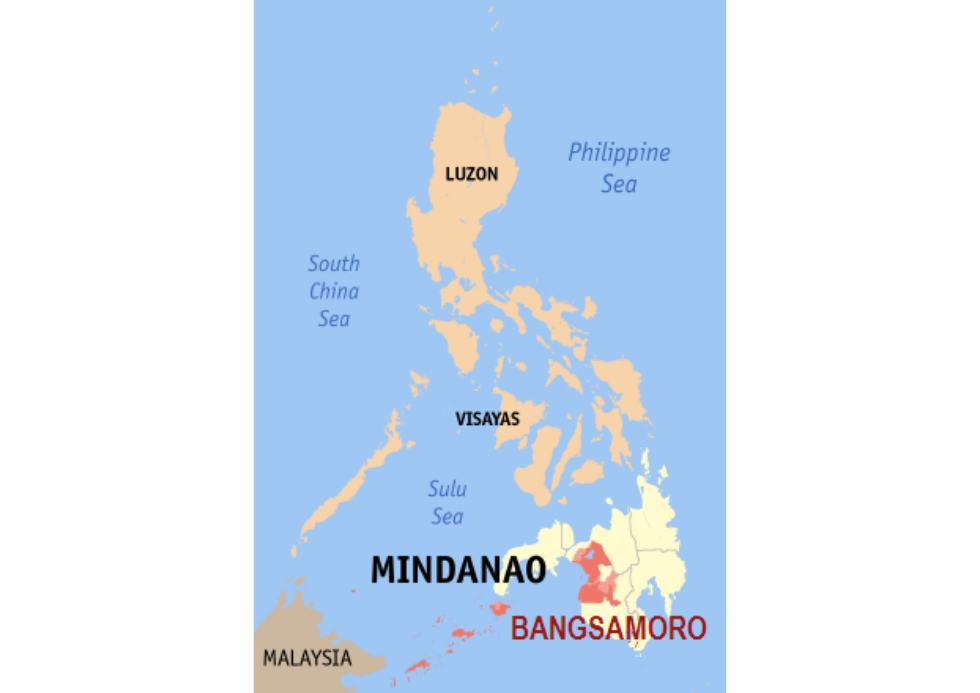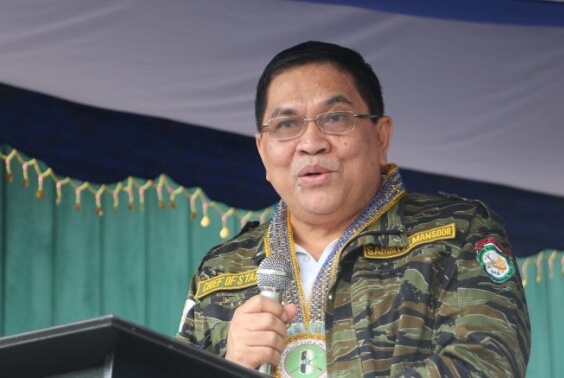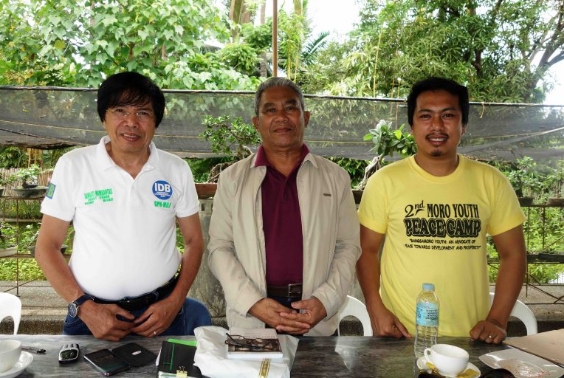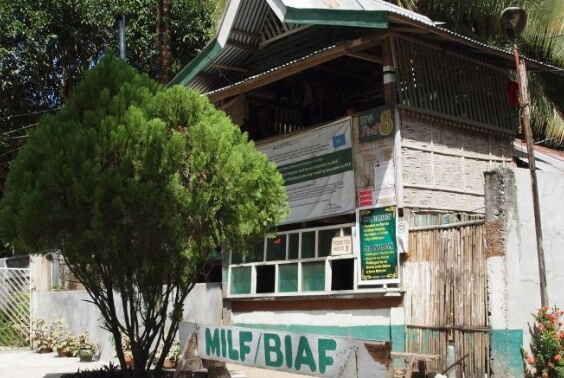- SOUTHERN PHILIPPINES
The Independent Commission on Policing (ICP): Process and Challenges in Peacebuilding

OPEN PUBLIC SEMINAR:
The Peace Process in the Southern Philippines: Its Challenges and Prospects
On the Mindanao Island and Sulu Archipelago of the Philippines where a large number of Muslim populations reside, there has been an armed conflict for over 40 years. Muslim elements have been fighting for their independence from the Philippines. The Government of the Philippines (GPH) endeavored to engage in peace negotiations and in 1996 a peace agreement was made with the Moro National Liberation Front (MNLF). Nur Misuari, the chairman of MNLF, was inaugurated as governor of the Autonomous Region in Muslim Mindanao (ARMM). Meanwhile, the Moro Islamic Liberation Front (MILF) refused to join the peace process and continued its armed struggle for independence. Despite this, on 27 March 2014, MILF signed the Comprehensive Peace Agreement (CPA) with GPH, which accelerated the mood for peace in Mindanao. According to the CPA, after a two-year transition period, there will be a referendum which will define the areas that belong to the Bangsamoro. A new Bangsamoro government will then be established following an election in 2016.
As things moved forward, there were concerns about who would take charge of and how the security of the Bangsamoro would be maintained after the new government is established. In response to this unease, the GPH and MILF formed the Independent Commission on Policing (ICP) with the support from the international community, and delegated the task of drafting policy recommendation on policing for the Bangsamoro. The ICP, which consisted of three foreign commissioners (including myself) along with four Filipino commissioners, submitted a report and recommendations for the Peace Panel on 14 April 2014 after 6-months of activity. The content of the report is not public, and the decision on when this might become so is entrusted to the Peace Panel. Given this, I have avoided disclosing specific details of the report recommendations. But I would like to share my views on the following points below:
- principles on which the ICP placed the importance when drafting the recommendations;
- power dynamics within the ICP which surfaced when forming consensus; and,
- foreseeable challenges which may emerge upon the implementation of the recommendations.
1. Important Principles of the ICP
There were two important but contradicting principles at the ICP deliberations. The first principle was “the status quo is unacceptable”. In other words, ICP recommendations were based on the understanding that policing under the jurisdiction of ARMM, which became existent after the final peace agreement between GPH and MNLF in 1996, had failed to meet the expectation of the people in the Bangsamoro. For the MILF, which continued its armed struggle even after MNLF signed the peace agreement with GPH, accepting the status quo meant losing credibility of the cause for which they had been fighting in the past.
Also, the ICP could not ignore the reality that turning the soldiers of the Bangsamoro Islamic Armed Forces (BIAF), who had fought for independence, into professional and neutral police officers would take time. Such a task cannot be achieved overnight. Thus, the second principle that the ICP valued was to assemble a police force that has the character of a civilian organization that would be trusted by the diverse community members of the Bangsamoro. By emphasizing the civilian character of the new police force, the ICP maintained its position that it would not allow the BIAF, a paramilitary organization, to slip furtively into the Bangsamoro police.
The first principle led to the conclusion that the status quo had to be changed. At the same time, however, the second principle reminded us that the reform could not be completed in a day. In this paradox, the ICP discussed the desirable characteristics of the new police, which would serve for the communities and the people of the Bangsamoro. The ICP stressed that in order to ensure security and order during the transition period, the MILF and GPH would need to cooperate with each other until the new police force is ready to be fully operational.

2. Power Dynamics within the ICP
The four Filipino members of the ICP consisted of two Philippine National Police (PNP) officers appointed by the GPH; two others were appointed by MILF (one of whom is a former chief superintendent of the PNP). The ICP was an independent committee, and each member acted as an individual expert, leaving their past and current career affiliations behind.
However, it was quite natural that two diametrically opposing views regarding the new Bangsamoro police might collide within ICP deliberations: one emphasizing the unity as a monolithic national institution, and the other pursuing the distinctiveness of the Bangsamoro. The point of contention was on the issue of how much authority would be delegated from the central government to the new Bangsamoro police. Through the delegation of authority, decision-making would be carried out in close proximity to the people of the Bangsamoro; however, if deemed that too much authority was delegated to the extent of jeopardizing the unity of the country, the Congress would not approve the change. These two opposing power dynamics made discussions at the ICP complicated. Under these circumstances, the ICP commissioners sought to reach a consensus based on two guidelines: that the ICP recommendations must fall within the four corners of the Constitution; and, that they should also abide by the Framework of Agreement on the Bangsamoro (FAB). Moreover, the ICP commissioners often returned to stress the original and fundamental premise of the ICP deliberation, that is, “the status quo is not acceptable”. In other words, the ICP ultimately emphasized as the third principle that what was desirable for the people of the Bangsamoro would be most important.
Nevertheless, there were limits to how much the ICP could measure the will of the people of the Bangsamoro within the given terms of the assignment and limited human resources allocated to the task. The ICP had opportunities to conduct surveys and interviews, and hold community dialogues with the various stakeholders, such as local politicians, MILF/BIAF, indigenous peoples, religious leaders, civil society organizations, PNP, Armed Forces of the Philippines (AFP) etc., and documented the views of over 400 people. However, with so many diverse and divergent views and opinions, the ICP commissioners were unable to reach a consensus on who would represent the people of the Bangsamoro.
3. Foreseeable Challenges in the Implementation of the Recommendations
The most serious issue frequently discussed at the ICP deliberations was the collusive relationship between the police and politicians. The new Bangsamoro police will have to win the trust of the people of the Bangsamoro in order to perform their duty fully. Therefore, the ICP was convinced that the new police would need improved accountability to the people it serves. The ICP commissioners shared the view that breaking the cozy, illegitimate ties between the police and the politicians was paramount.
In a parliamentary democracy, politicians who are elected democratically are legitimate representatives of their constituents. And, mayors and politicians chosen by the peoples have the right and the duty to oversee the police on the voters’ behalf. Yet in reality, there are problems, such as with the electoral system that allows elected leaders to abuse their positions to use the police to advance their personal interests and gains. Reforms directed only at the police would not be sufficient in solving this problem fundamentally; political and electoral system reforms must also be undertaken. However, this would exceed the ICP’s role and mandate, and the most significant reform agenda could, therefore, not be proposed in the ICP report.
The second concern revolved around the existing police officers in ARMM of which there are 6,500 Muslim police officers. Considering the prerequisite, “the status quo is unacceptable”, and the basic proposition that community members must trust the police, it is unlikely that these police officers will be automatically accepted in the new police force. It is alleged that the majority of Muslim police officers in ARMM was hired through personal connections or other unlawful means, such as through bribery, and fails to meet the required standards of a police officer. The treatment of those who do not meet the standard of a police officer needs attention, as they may become a spoiler and a source of insecurity if they are simply dismissed from the police force as unfit for duty. They may disturb the peace process by joining anti-government forces or criminal elements. As an expert of peacebuilding, I underlined the significance of this issue many times at the ICP deliberations. Despite my warnings the issue of “re-training” the current police officers in ARMM was not thoroughly discussed, although the topic of “re-tooling” of the BIAF soldiers by providing substantial training to transform them into a professional civil police officers was explored extensively.
The third issue was how to maintain the security of the Bangsamoro during the turbulent transition period. In order to convince the people in the community that a new era has arrived, the security situation must improve rapidly and significantly. Various sources of insecurity exist in the Bangsamoro, e.g., anti-government elements other than MILF, spoilers of the peace process, criminal organizations, abduction-for-ransom groups, terrorists and others. However, it will take time for the new police to stand on its own feet and be responsible for the security and law enforcement in the area. Therefore, it was determined that MILF/BIAF, AFP and PNP would have to work together to maintain peace and security in the Bangsamoro during the transition period. Nevertheless, there are many problems left unsolved, e.g., how each organization should coordinate with each other so that the security and law enforcement would be effectively provided, how these organizations would be able to share the tasks with the new Bangsamoro police, and how they would handover their tasks eventually to the new Bangsamoro police, etc.
Moreover, from the perspective of maintaining security and law enforcement, one must also examine how the new Bangsamoro police would be able to cope with “Rido”, a clan-based conflict. New problems might arise since Rido is deeply rooted in social custom, and it is closely related to Shari’ah law. Since the people in the community have neither adequate trust in nor access to the existing public justice system, the customary judicial measure has a significant role in the current situation. In order to achieve the “rule of law” from the viewpoint of human security, police reform alone would not be sufficient, and it has to be accompanied by judicial reform. As an expert of security sector reform, I have repeatedly underlined this point during the ICP deliberations. Nevertheless, to touch upon the judicial reform was beyond the mandate and authority of the ICP. Besides, time was too short, even just to discuss police reform in a thorough and comprehensive manner; and thus, the necessary linkage between the IPC recommendations and the judicial reform was not adequately articulated.
Conclusion
Both GPH and MILF stand on the common ground that “the status quo is unacceptable.” Hence, there is certainly prospect for the change towards peace. The ICP recommendations were aimed at facilitating this trend. The ICP recognized the importance of placing human security of the people of the Bangsamoro as an overriding objective, and suggested an ideal form of the new Bangsamoro police. For the people of the Bangsamoro to enjoy freedom from fear, the new Bangsamoro police will play an important role. The ICP recommendations have illuminated merely a framework for an ideal vision for community-oriented policing. To give life to the framework and crystalize the vision, it is important that GPH and MILF work together to implement the recommendations as a shared responsibility so that the existing trend for the change and reform would not stagnate. Meanwhile, more problems are expected to surface in the process of implementing the recommendations. The three challenges that were discussed in this paper would not be resolved fundamentally, even after the reform of the police structure has been completed. These challenges can only be addressed effectively if they are placed firmly within a scope of comprehensive efforts towards peacebuilding, which includes politics, governance and justice. In short, for peacebuilding it is imperative that the reform should go beyond the ICP recommendations.

Professor, Waseda University Japanese government representative and member of the ICP







